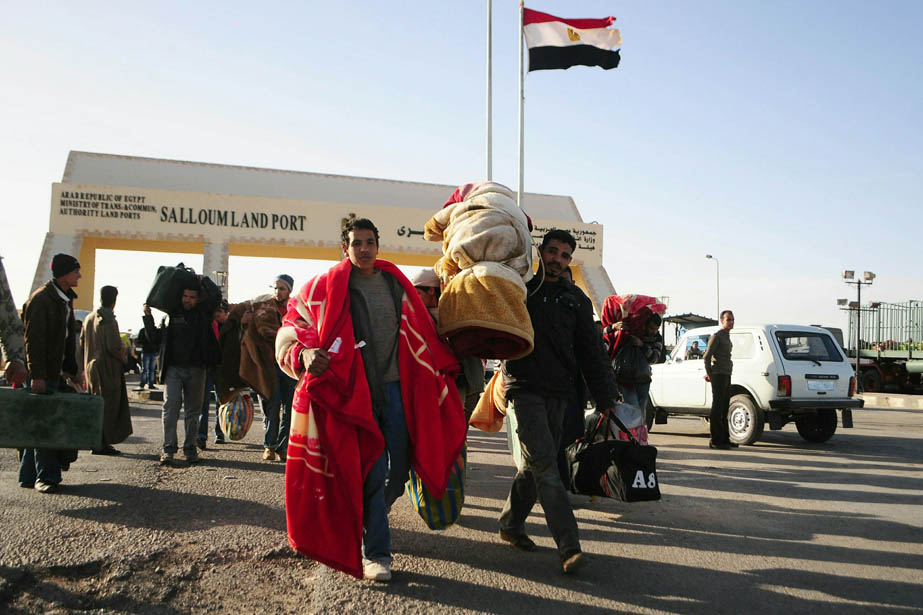Real estate consultancy company Cluttons recently set up an office in Egypt. The company’s main line of business revolves around real estate and non-real-estate activities including fund management, investments, mergers and acquisitions as well as an advisory. Daily News Egypt sat down with Michael O’Connell, Cluttons director for Egypt, to discuss the company’s presence in Egypt and how it reviews the Egyptian real estate market.
How do you evaluate the investment environment in Egypt?
We saw that after the presidential elections, the real estate started to climb a little bit quicker than we anticipated. But unlike the stock markets and the stocks and shares equities, the real estate market has a drag factor. You can’t buy or sell real estate in a matter of seconds like you can on the stock market. It is going to take some time to filter through the system.
When do you anticipate the pickup in the real estate market to happen?
We are anticipating it would happen during the first quarter of 2015.
What is the anticipated percentage of price increases in term of rental values?
It’s difficult to anticipate the percentage of pickup. In an isolated area like Kattameya, located in the fifth settlement, we expect to see a marginal increase in rental values. The increase in rent prices in Kattameya are expected to be between 15% and 20%.
Areas in the Smart Village and the 6th of October City are becoming a little more competitive. We noticed through some of the rent reviews we have been doing with our global accounts in the Smart Village that rents are coming down slightly. [This happened due to] the development of Kattameya at a faster pace. [Rent prices in the Smart Village] are expected to go down by 10% to 15%. The same decrease applies to Nile City towers, where rents have substantially dropped.
City Stars went through the same experience where some big international organisations threatened to pull out, and they have been fairly aggressive in driving their rates down.
Once a big organisation starts the renegotiation of a lease negotiation, it sets the tone for the rest.
What are the trends we can anticipate in the real estate market?
I think the dynamics of the shopping malls need to change. There are around four or five, maybe six international franchises owners. With the exception of the Mall of Egypt, which is currently under construction, there really isn’t much to separate shopping malls from each other. We provided Cairo Festival City with the market intelligence and feasibility studies and we found that there was a lot of buzz around it under construction. It was believed that it would become the number one shopping mall in Egypt and overtake City Stars, but it has been relatively disappointing and City Stars remains that main destination.
What are the projects the company is currently involved in?
The company has been retained on three advisory projects. They are three developers and the company is conducting the feasibility studies for them and the number projects on some projects, with the intentions of being retained and managing these projects throughout completion.
About these three companies, what sectors do they operate in?
The companies are traditional real estate developers.
Since you already have a headquarters in Dubai, what encouraged you to open an office in Egypt?
Two reasons really. The first was that we were under a contractual agreement with Nokia Siemens Networks (NSN) to open up a regional hub here [in Egypt] to manage the account from Egypt. Secondly, we had to be on the ground, physically. We couldn’t manage Egypt from Dubai or from London. The dynamics of real estate and the dynamics of the organisation itself would’ve been very difficult to manage from afar.
How would you see your company doing in terms of profit and market share?
Although there are top 10 international consultancies as big as this company, it is just us and Jones Lang Lasalle that are permanently based on the ground here. So in terms of market share with competitors, we can say that it is a competitive market but the companies that come from Dubai or London to do work find it a little bit harder to understand the supply and demand rations, the market intelligence and how to collect primal, reliable data is a problem for them.
So you believe you have a competitive advantage that can help the company attain market share?
Exactly, yes.
Who are your clients in Egypt at the moment?
We do some advisory for Unilever, Kraft foods, Vodafone, NSN, KLM, AirFrance along with others. When they retain us to do work for them, it is mainly based on the leasing side not the properly management side.



